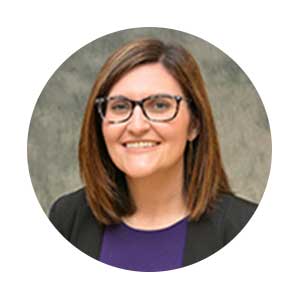Call it another pandemic problem. Mammogram appointments declined dramatically during 2020 compared to 2019. It’s understandable that routine screenings were put on hold early in our fight against COVID-19.
The fact is breast cancer is still the most commonly diagnosed cancer among American women. One in eight will develop invasive breast cancer over the course of her lifetime. You don’t have to be that one. A yearly mammogram can help you beat those odds -- and not need the care of a breast surgeon like me.
I chose this specialty to help women get past what will likely be the most difficult part of their lives. My message to all women is that mammograms give you the best chance to catch breast cancer early, when it’s easiest to treat.
If you’re putting off your mammogram, you probably have your reasons - and maybe it has nothing to do with the pandemic. I’ve summarized some of the most common responses I hear below, along with what I tell women about the importance of making that mammogram appointment.
Common Misconceptions Around Breast Cancer and Mammograms
I’m Too Young for a Mammogram.
The American College of Surgeons, the American College of Radiology and the American Cancer Society all agree that women of average risk, regardless of family history, should get their first mammogram at age 40 and get one yearly thereafter.
Cancer Doesn’t Run in my Family, So I’m Not at Risk.
A lot of women think that if there’s no breast cancer in their family history, they don’t have to bother with mammograms. The fact is about 85% of breast cancers occur in women who have no family history of breast cancer. Every woman has an elevated risk of breast cancer simply because they are a woman.
I’m Waiting Until After the COVID-19 Surge is Over to Schedule My Mammogram.
Putting off getting a mammogram for a year or more can let a cancer that’s not detected continue to grow - and become more difficult to treat. I want to assure you it’s safe to get your mammogram. Health care facilities take precautions to protect everyone’s health during these COVID-19 times, including wearing masks and gloves and increased cleaning of all equipment.
I’ll Get a Mammogram if I Feel a Lump.
The purpose of a mammogram is to catch early breast cancer. If you can feel a lump, the cancer is already large and will be more difficult to treat. When it’s caught early, you have a much better prognosis.
A Mammogram is Too Painful.
While smaller breasts typically need more compression, which can be uncomfortable, everything possible is done to minimize discomfort during your mammogram. If you are worried about pain, tell your imaging professional. They care about your comfort.
I Have Anxiety About What a Mammogram Will Find.
I hear this often in my practice. Women tell me they worry about getting the results. I compare getting a mammogram with taking a pregnancy test -- it just helps if you find out sooner. Again, I can’t overemphasize how much easier it is to treat breast cancer when it is caught at its earliest stage.
I’m Too Busy to Schedule a Mammogram.
Women often put taking care of family before taking care of themselves. Here’s my message to busy women: If you don’t take this time for your health, you could face a more difficult-to-treat cancer. That scenario will make it harder for you to care for your family -- and put you in the position of needing your family to care for you. Taking time out for a yearly mammogram is the best gift you can give your loved ones.
Learn more about CHI Health breast care services.





